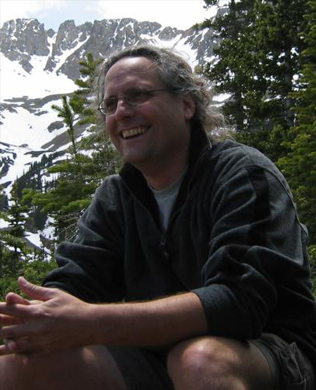 |

Walk Softly When Exploring the Dark Side of the Universe:
Black Holes, Dark Matter and Dark Energy

18th ANNUAL GREAT LECTURE IN ASTRONOMY
Saturday, February 6, 2010
1-2 P.M., 2.302 ACES

map
Prof. Karl Gebhardt
The University of Texas at Austin
Abstract
The current understanding of the Universe is undergoing a fundamental transformation. Our Universe is only recently
discovered to be expanding much more than our naive expectations, which we explain as dark energy. The particle that
dominates mass around galaxies and in the Universe is unknown, which we refer to as dark matter. Black holes are
thought to be ubiquitous in galaxies, yet we do not understand the physical process by which they form and interact
with galaxies. Each of these three areas are ripe for significant advances. While they are unlikely to be physically related,
the observational techniques needed to study them are very similar. I will overview the current discoveries and understanding
of these dark components of the Universe, and summarize the full-scale attack from ongoing and future efforts. We are truly
living through a unique time for Astronomy.
Karl Gebhardt grew up in the snow-filled winters of Rochester, NY. His career has taken him through Michigan State University,
Rutgers University (where he received his PhD in 1994), University of Michigan, University of California at Santa Cruz, and eventually
to the University of Texas at Austin in 2000, where he is now a professor in the Department of Astronomy. He works on a variety of
galaxy studies, ranging from black holes to dark matter to dark energy. He has won numerous awards, including Northeastern
Graduate Schools Dissertation Award (1995), a Hubble Fellowship from NASA (1997), Teaching Excellence Awards from the
University of Texas (2003) and McDonald Observatory and Department of Astronomy Board of Visitors (2004), and a National
Science Foundation Career Award. He works with numerous undergraduate and graduate students, and involves them in all
levels of his research. Most of his career has focused on understanding the role that black holes play in the formation of a galaxy.
He has measured more black hole masses than anyone in the world, and he is actively targeting many more galaxies for this study.
His recent work focused on understanding dark energy with the Hobby-Eberly Telescope Dark Energy Experiment (HETDEX). It was
shown a few years ago that the Universe is expanding much faster than what had been expected. Scientists have called this extra
expansion dark energy, a mysterious force that works to counteract the pull of gravity. It is actually pushing the Universe apart.
Dr. Gebhardt and colleagues have outlined a unique approach using the Hobby-Eberly Telescope at McDonald Observatory. They
expect their results will be the most accurate measure of dark energy for many years into the future.
The Great Lectures in Astronomy series features distinguished speakers presenting a topic in modern astronomy for interested non-astronomers.
The lectures are sponsored by the The University of Texas at Austin McDonald Observatory and Department of Astronomy Board of Visitors.
|
